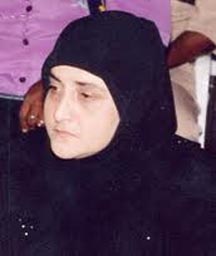Members of the legal fraternity have expressed concern at the intervention by the Director of Public Prosecutions (DPP) to advise a retrial of Samuel Hinds Jr and say the law does not allow her to do so.
The law states that a person cannot be subjected to a trial for an offence for which he/she has already been convicted.
Article 144 (5) of the Constitution states: “No person who shows that he has been tried by a competent court for a criminal offence and either convicted or acquitted shall again be tried for that offence or for any other criminal offence of which he could have been convicted at the trial for that offence, save upon the order of a superior court in the course of appeal proceedings relating to the conviction or acquittal.”
However, the law does not address what happens in a case where the person was convicted but not yet sentenced as is the case with Hinds Jr. It is here that there seems to be some division in the legal community on how the court ought to proceed.

Hinds Jr was found guilty of assault by magistrate Geeta Chandan-Edmond, who had set February 20 for sentencing pending the presentation of a probation report. However, on that date, sentencing was deferred after the probation officer assigned to the matter was not in court to present the report. Hinds Jr’s fate then became unclear when it was announced on the same day that the magistrate had been relieved of her duties.
Several legal sources said that this case is sensitive one given not only the publicity that surrounds it, since the convict is the son of Prime Minister Samuel Hinds, but also conflicting aspects of the law. They said that it may very well mean that if there is a retrial, the outcome will be different, owing to factors including and not limited to the availability of witnesses.
Stabroek News was unable to make contact with DPP Shalimar Ali-Hack, whose secretary said that she was out of the office. This newspaper called on two occasions and was told to continue to call at regular intervals.
A legal source told Stabroek News yesterday that there was no need for the DPP to intervene. Moreover, he said he was shocked when he read in the press that the DPP had recommended a retrial.

He explained that different circumstances can lead to a magistrate being unable to complete a matter, including death and in Chandan-Edmond’s case, the termination of services. The source said in such cases, regardless of the circumstances, the matter has to begin “de novo,” meaning that it has to begin afresh. “You cannot expect another magistrate to pick up a matter where someone has left off,” the source said, while adding that magistrates being unable to conclude a matter “happens all the time.”
He said too that in the case of Hinds Jr, the proper step would be for the Chief Magistrate to reassign the matter to another magistrate who would then conduct a new trial. Chief Magistrate Priya Sewnarine-Beharry had reassigned the matter to Magistrate Annette Singh. It was the police prosecutor who on April 7 informed Magistrate Singh and the court that the DPP had recommended a retrial. The DPP is the constitutional authority in place to provide the police with legal advice.
Magistrate Singh subsequently set April 17 for a decision on whether the matter will be tried again or if a sentence handed down.
Based on what the legal source told this newspaper, Magistrate Singh would have to retry the convict as the law does not provide for her to sentence him when she was not the one who made the conviction.
Meanwhile, Head of the Guyana Bar Association Ronald Burch-Smith, who noted his limitation in answering questions on the DPP’s recommendation as he was abroad, questioned the reasoning for rushing to terminate the initial magistrate when she would have had matters before her that were still ongoing.
“As far as I know the disciplinary proceedings against Magistrate Chandan-(Edmond) disclosed no urgency. It is not clear why the JSC [Judicial Service Commission] did not see it fit to ensure that any outstanding work was completed before she was terminated. No employer would run his affairs this way,” the attorney said.
He said that when it comes to the question of a retrial, one has to question what is included in the first trial and what statutory authority exists to decide that a trial is a nullity or could be deemed a nullity. He said that these things need to be decided when the question of a retrial arises.
According to Burch-Smith, Section 67 of the Summary Jurisdiction (Magistrates) Act does not entirely answer these questions.
If, however, a retrial takes place, he said, then the first trial would have to be deemed a nullity before the second could continue. “It may be appropriate for the DPP to raise the question in the Court of Appeal or Full Court by way of an appeal. The Chief Magistrate can also do this,” the attorney declared. He said that if such a step is taken, then the matter could be decided by the superior court before the lower court proceeds.
Attorney Peter Hugh, who represented Hinds Jr during the trial, argued that it would be unfair for his client to be tried twice for the same offences. He said it contravenes the legal principle “that a man ought not to be tried twice for the same offence.”
Hinds Jr was tried for beating his sister-in-law Tenza Lane with a cane and threatening her with a gun on February 27 last year at his Lot 83 Duke Street, Kingston, home. It is the police’s case that Hinds Jr had also called Lane a thief, threw her to the ground, stomped her in the face and dragged her by her hair around his house. He had denied the charge.
Lane was also charged with assaulting Hinds Jr but was cleared after a trial.
The repeated absence of Hinds Jr, saw Magistrate Chandan-Edmond deferring her ruling on his guilt for over eight months, during which nine adjournments were granted. His lawyer had said that Hinds Jr was unwell and was not aware that he needed to provide a medical to the court for his absence.
In her submissions to the court on April 7, police prosecutor Renetta Bentham explained that the DPP had advised that on the facts of the case, the issue is whether the guilty verdict of the previous magistrate represents a final adjudication in the matter.
She said that the legal opinion, according to Section 35 (1) and (2) of the Summary Jurisdiction Procedure Act, refers to the word “decision,” in dealing with orders and matters where the magistrate is no longer in the magisterial district.
She said that moreover, the word “decision” is interpreted in the courts by case law (which she cited), “to mean a final adjudication which includes a verdict and sentence.”
The prosecutor submitted that since “there is no sentence before the departure of the magistrate, the mere verdict cannot be deemed as a final adjudication of the matter.”
Bentham said that based on the law, the new presiding magistrate may not sentence the defendant consequent to another magistrate’s hearing of evidence.




